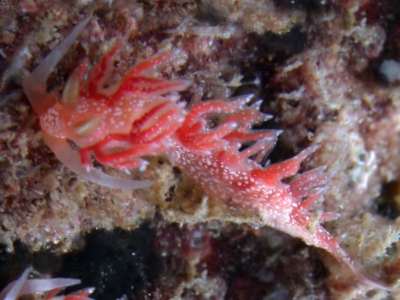
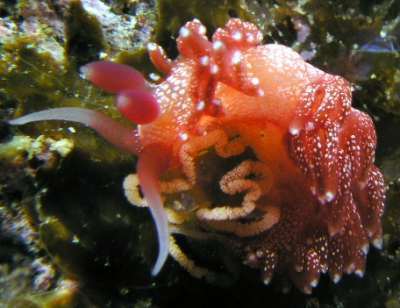
Flabellina telja
Marcus & Marcus, 1967
Order: NUDIBRANCHIA
Superfamily: AEOLIDINA
Family: Flabellinidae
DISTRIBUTION
Pacific coast of central America.
PHOTO
Los Arcos Islets, Puerto Vallata, Bahia de Banderas, Mexico. Eastern Pacific. Depth: 35 feet. Length: 5 to 12 mm. 5,8 and 29 January 2004. On rocks and walls. Photographer: Alicia Hermosillo
The body is a translucent pinkish colour covered with opaque white spots of irregular size and shape. The cerata are similarly white-spotted. The body is also coloured by the underlying viscera, often becoming a dark reddish pink, apparently after feeding. The ceratal digestive gland duct is large, filling the cerata, and also can become a dark reddish pink. The rhinophore has a large rounded lamellate (perfoliate) club which is essentially translucent white but can be coloured with light brown or deep pink.
See also Bajaeolis bertschi, F. cynara, F. marcusorum and F. vansyoci, which are all east Pacific aeolids with white spots.
-
Ferreira, A. J. and Bertsch, H. (1972) Additional data on Flabellina telja (Gastropoda: Opisthobranchia). The Veliger, 14: 414 - 415.
-
Marcus, E. and Marcus, E. (1967) American opisthobranch mollusks. Part 2, Opisthobranchs from the Gulf of California. Studies in Tropical Oceanography, Miami, 6: 141 - 256.
Rudman, W.B., 2005 (November 17) Flabellina telja Marcus & Marcus, 1967 . [In] Sea Slug Forum. Australian Museum, Sydney. Available from http://www.seaslugforum.net/find/flabtelj
Related messages
Flabellina telja from Mexico
November 18, 2005
From: Alicia Hermosillo
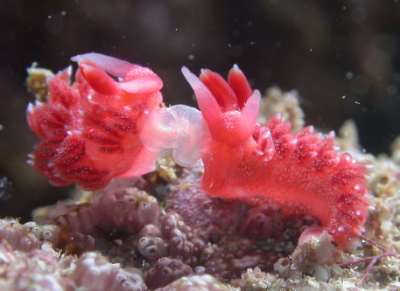
Dear Bill,
Here are some photos of Flabellina telja. This was the most abundant Flabellina in the Bay during with a major population boom in 2002 along the coast. This peak however, has not happened again.
Locality: Los Arcos Islets, Puerto Vallata, Bahia de Banderas, Mexico. Eastern Pacific. Depth: 35 feet. Length: 5 to 12 mm. 5,8 and 29 January 2004. On rocks and walls. Upper photo: 2 animals mating. Lower left: pale white rhinophores. Lower right: Reddish rhinophores, and egg ribbon. Photographer: Alicia Hermosillo
The rhinophores can be yellow, brown or pink. The body color varies from a very pale to a bright pink. The cores of the cerata also vary in color.
Kind regards,
Ali
gueri25@hotmail.com
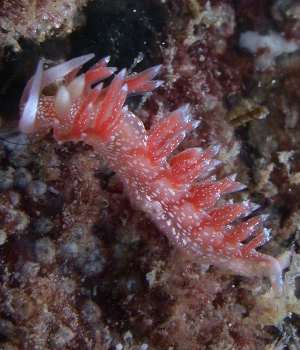
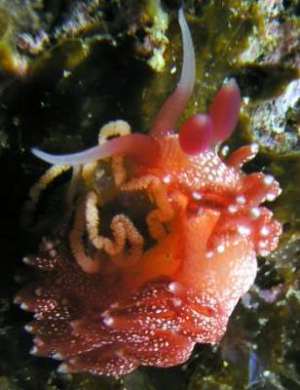
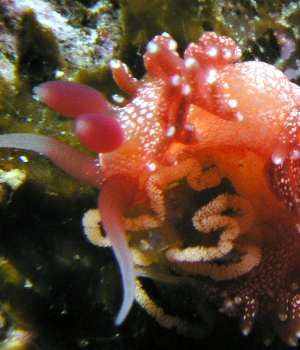
Dear Ali,
Thanks for this useful addition to the Forum.
Best wishes,
Bill Rudman
